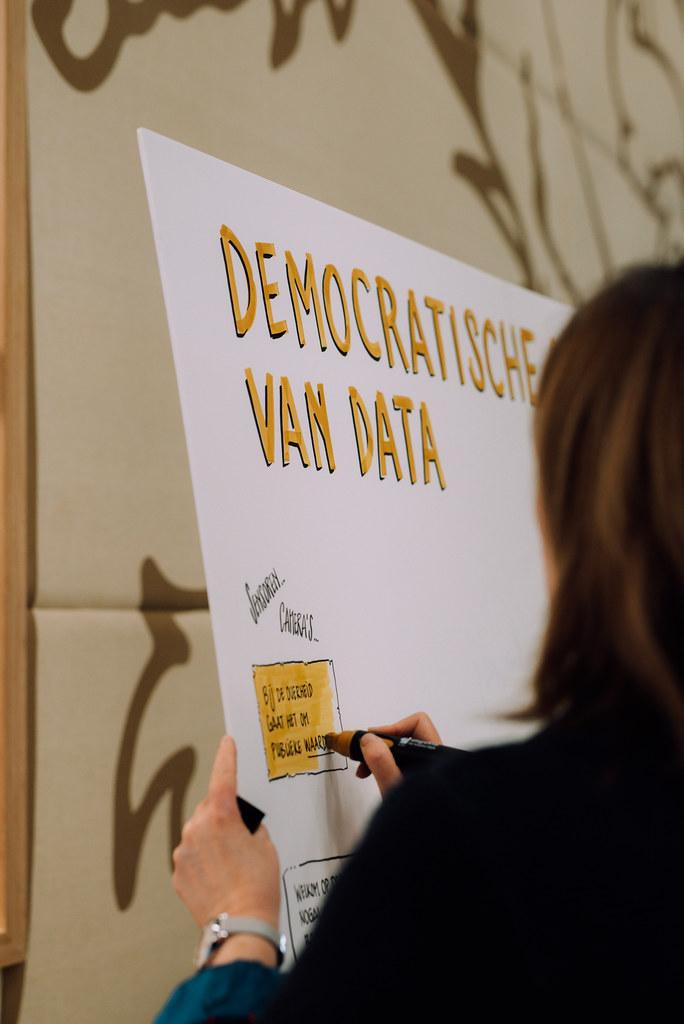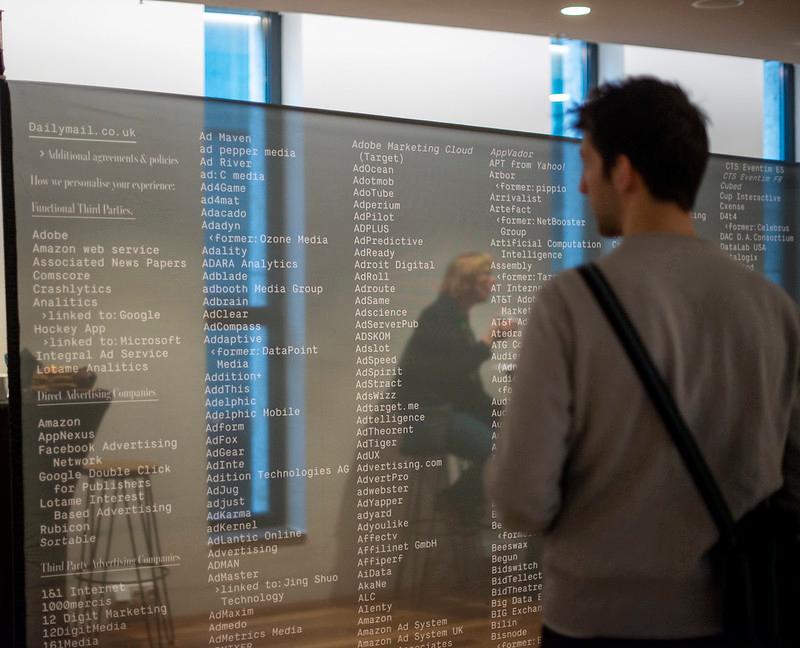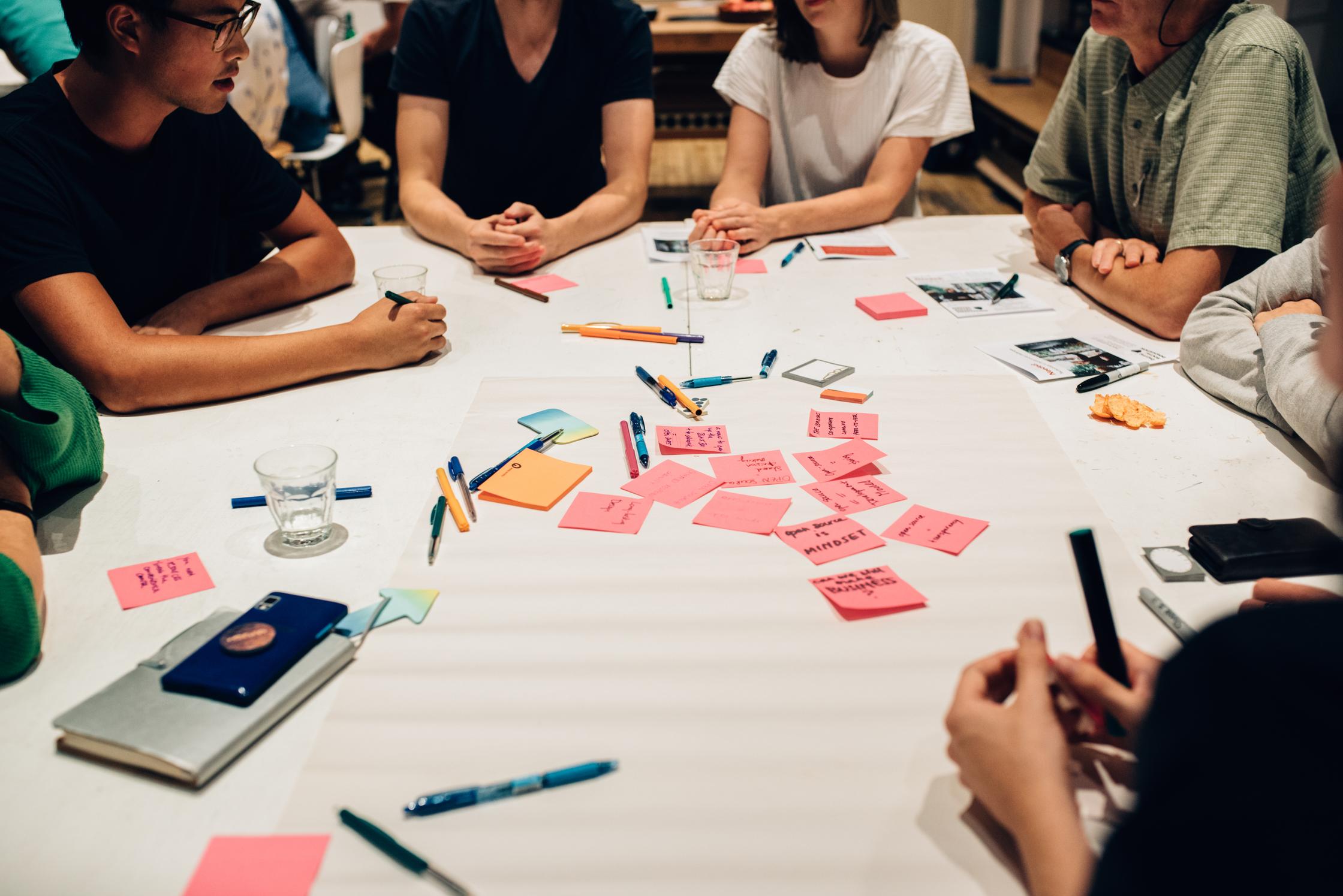In the upcoming months, Waag is working on the project MicroDonor. We're going to investigate whether a system of micro-donations would be a suitable profit model for open source developers, content makers and cultural organisations that prefer not to make profit with the personal data of their users. Through this blog, we keep you posted on our (re)search.
Would you like to join the conversation? Join us on March 18th for our discussion with developers, content makers and cultural organisations on the standard of web monetisation (in Dutch, online).
Not a day goes by that we're not making use of the Big Five tech companies services: Facebook, Amazon, Google, Microsoft and Apple. We have become strongly dependent on their online platforms and services. A large part of the 'free' platforms base their profit model on collecting and selling our personal data. In this model, people are seen as a commercial means for exploitation in which our personal data is worth money.
Waag places public values at the heart of technological development: with the Public Stack-model we fight for an open, honest and inclusive technology. We believe that public values instead of commercial goals should form the base of our technological and digital infrastructure.
Public values first
Luckily, there has been a rise of companies that dó operate according to the values of the Public Stack, like video conference tool Jitsi and the service for digital identity IRMA. They offer online platforms and services where societal interests are of first importance, and where civilians are actively involved in the design process. However, these organisaties need to use an alternative financing model in order to be sustainable for the long term. This idea is central to the project MicroDonor, where Waag is working on in the next months. In this new, innovative financial model the privacy of users will be protected.
How does it work?
MicroDonor is based on voluntary donations of users to platforms. It's a transparant way of delivering open, safe content and services. Waag received a subsidy for the development of a 'micro-donation' system from Grant for the Web, an American organisation that makes an effort for so-called Web Monetization models. The micro-donation system works holds that users automatically donate a small amount (like 0,5 eurocents) to the platform provider. A protocol called Interledger helps to send the transacties between different blockchains.
Is it a desirable profit model?
The upcoming time, we're going to research whether Web Monetization would indeed contribute to the Public Stack-way of thinking. Like, how should the system be made system technically? Should users be able to create a virtual wallet to support payment system, and if yes, how do to design it? And would it be convenient and desirable to make a donation per platform, or should the amount be linked to a streaming service that can look into the amount of time that you use a platform?
In the end, we'll work towards a prototype for a web extension where the user becomes a microdonor when they visit a websites.
Apart from the technical side, there's also an important social aspect to the project. Is the microdonor profit model desirable? How can it be designed it as open and transparant as possible? To answer the societal question, we would like to create a conversation with different groups of experts with co-design sessions. We also want to reach out to a broader audience with a (digital) evening programme. We aim especially for three central user groups: open-source developers (like Jitsi en IRMA), content makers and cultural organisations. From there, we hope to conclude from different angles whether the micro-donation system would indeed be something that could be upscaled and if we would like to use them for our own platforms as well.
Do you think MicroDonors are an important topic or are you dealing with these kind of questions within your own work? Join us at the public programma on Thursday the 18th of March! If you recognise yourself in one of the user groups and are you eager to actively engage with us: please send a mail to hannah(@)waag.org to join the co-design sessions in March and April.


